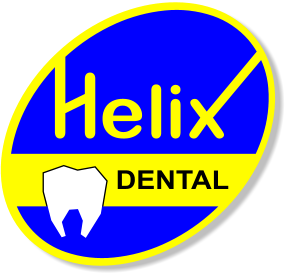
Do Your Teeth Need Vitamins?
Vitamins are essential to your overall health, and that includes your dental health. Vitamin deficiencies are often linked to health issues, and this includes oral health. Deficiencies in vitamins A, D, and K can cause tooth decay or gum disease. Since vitamin D is synthesized by sunlight exposure, you may also notice a change in how sensitive your teeth are when you are outside. You may also notice that your teeth get darker in the winter due to a decrease in exposure to the sun’s rays.
If you are taking a multivitamin supplement daily, that does not mean that you can’t also eat vitamin-rich foods throughout your day. Fruits and vegetables are naturally rich in vitamins and minerals. You can also snack on nuts and seeds. Your doctor may recommend supplements if your diet is lacking in certain nutrients. For example, they may recommend taking vitamin B12 if you are a vegetarian. This nutrient is often derived from animal products like eggs and fish. However, many plant-based foods are fortified with B12 as well. It is rare to have a deficiency in this vitamin because it is widely available as a dietary supplement.
Some drugs can interfere with the absorption of vitamins and minerals. For this reason, it is important to tell your doctor about any medications you are taking. They will be able to tell you if any of your prescriptions will hinder your absorption of certain nutrients. If it will, your doctor can write you a prescription for a different medicine that won’t affect your body’s ability to absorb specific substances.
Why Do Teeth Need Vitamins?
Our teeth are filled with tiny living cells called dentinal tubules, which absorb nutrients from the foods we eat. Cavities and gum disease could be caused by a lack of vitamins and minerals in your food or by your body not absorbing the minerals it needs.
For instance, Vitamin D helps fight tooth decay, but our body can’t produce it naturally. A lack of vitamin D can lead to cavities. On the other hand, too much calcium can cause our teeth to be too stiff to bite down properly. It’s important to find a balance between too little and too much of a good thing!
Many chewable vitamin supplements contain fluoride and calcium, which are important to oral health. However, it’s best to take these in limited quantities until your dentist says otherwise. Too much fluoride can damage your enamel and increase your risk for cavities.
If you have specific nutritional deficiencies, your dentist may recommend supplements in addition to a healthy diet to increase your risk of tooth decay. For example, iron deficiency is linked with increased levels of inflammation, which leads to an increased risk of periodontal disease. Increasing your intake of iron-rich foods like spinach can reduce those risks.
Which Vitamins Are Good For My Teeth?
This doesn’t mean that you shouldn’t take multivitamins, but you should make sure you’re taking the right kind for your teeth and gums. Multivitamins are supplements that contain vitamins and minerals, including Vitamin A, Vitamin B, Vitamin C, Vitamin D, and Vitamin E. Most multivitamins contain a combination of these nutrients.
Vitamin A is good for your eyes and skin but can also provide support for your gum health. This vitamin can be found in leafy green vegetables and carrots. Vitamin B6 is used to naturally keep your gums healthy and prevent gum disease. It can be found in beans, bananas, avocados, and lentils. There are many benefits of vitamin C for your teeth too. It can fight harmful free radicals that can cause tooth decay as well as promote healthy gums. You can receive this vitamin from citrus fruits and broccoli. Vitamin D is important to help support the calcium in your body, which is important for strong teeth and bones. You can find many sources of vitamin D in dairy products, such as milk and cheese. Finally, vitamin E can also be found in many nuts and oils. It has several benefits that will help with your oral health, such as reducing inflammation and infection. The oil from vegetable oils such as olive or coconut can also be used to add extra vitamin E into your daily diet. Talk to your dentist or doctor about the right dosage if you’re taking a dietary supplement. You can also find out whether your diet is supplying enough of each nutrient in your diet.
To find out more about the dental services offered at Helix Dental, call (973)-377-8668 or schedule an online consultation. You can also visit us at 15 James Street, Florham Park, NJ, 07932.
Location
15 James St Suite 1,
Florham Park, NJ 07932
Office Hours
MON9:30 am - 5:30 pm
TUE - WED9:00 am - 6:30 pm
THUClosed
FRI9:00 am - 6:30 pm
SAT9:00 am - 2:00 pm
SUNClosed






comments